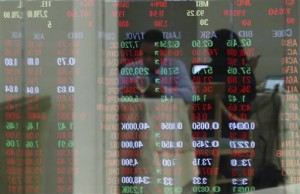The manufacturing sector sustained growth in November even as the country’s chief economist on Friday admitted that high consumer prices had tempered factory output expansion.
The Philippine Statistics Authority’s (PSA) latest Monthly Integrated Survey of Selected Industries report for November 2018 showed that the Volume of Production Index (VoPI) grew 1 percent that month, reversing the 10.1-percent contraction a year ago.
The VoPI, a proxy for total factory output, expanded for the eleventh straight month in November last year, the state planning agency National Economic and Development Authority (Neda) said in a statement.
The PSA attributed the growth in November’s VoPI to higher output in 14 major sectors, led by textiles (up 45.8 percent), miscellaneous manufactures (up 25.6 percent), petroleum products (up 22 percent), tobacco products (up 21.1 percent), paper and paper products (up 15 percent), beverages (up 11.7 percent) and electrical machinery (up 11 percent).
The Value of Production Index (VaPI) also rose by a faster 2.1 percent, a reversal of the 10.6-percent decline in the same month in 2017.
Production of textiles, tobacco, petroleum, miscellaneous manufactures, beverages, paper and paper products, electrical machinery and nonmetallic mineral products posted the biggest growth in the November VaPI, PSA data showed.
While noting a sustained manufacturing growth in the first 11 months of last year, Socioeconomic Planning Secretary and Neda chief Ernesto Pernia said “indices showed a declining trend starting on the second half of 2018.”
Pernia attributed the slower growth in factory output to the tempered optimism of businesses and consumers in the fourth quarter of 2018.
The Bangko Sentral ng Pilipinas in December reported that its latest surveys had shown that confidence indices of local businesses and consumers slid to their lowest levels in nearly eight years amid elevated prices, weak peso and higher interest rates.
Pernia nonetheless expressed optimism that business and consumer confidence will rebound given easing inflation, the upcoming midterm elections in May, the rollout of the ambitious “Build, Build, Build” infrastructure program, and the economic reforms being introduced by the Duterte administration.
“The upside factors that can help improve consumer outlook and prop up demand are the sustained slowdown of inflation in December on the back of the decline in rice and oil prices, and a rollback in jeepney fare,” he said.
“We also expect that election-related spending will drive up manufacturing, particularly production of food, beverage, tobacco, printing and paper products,” he added.


